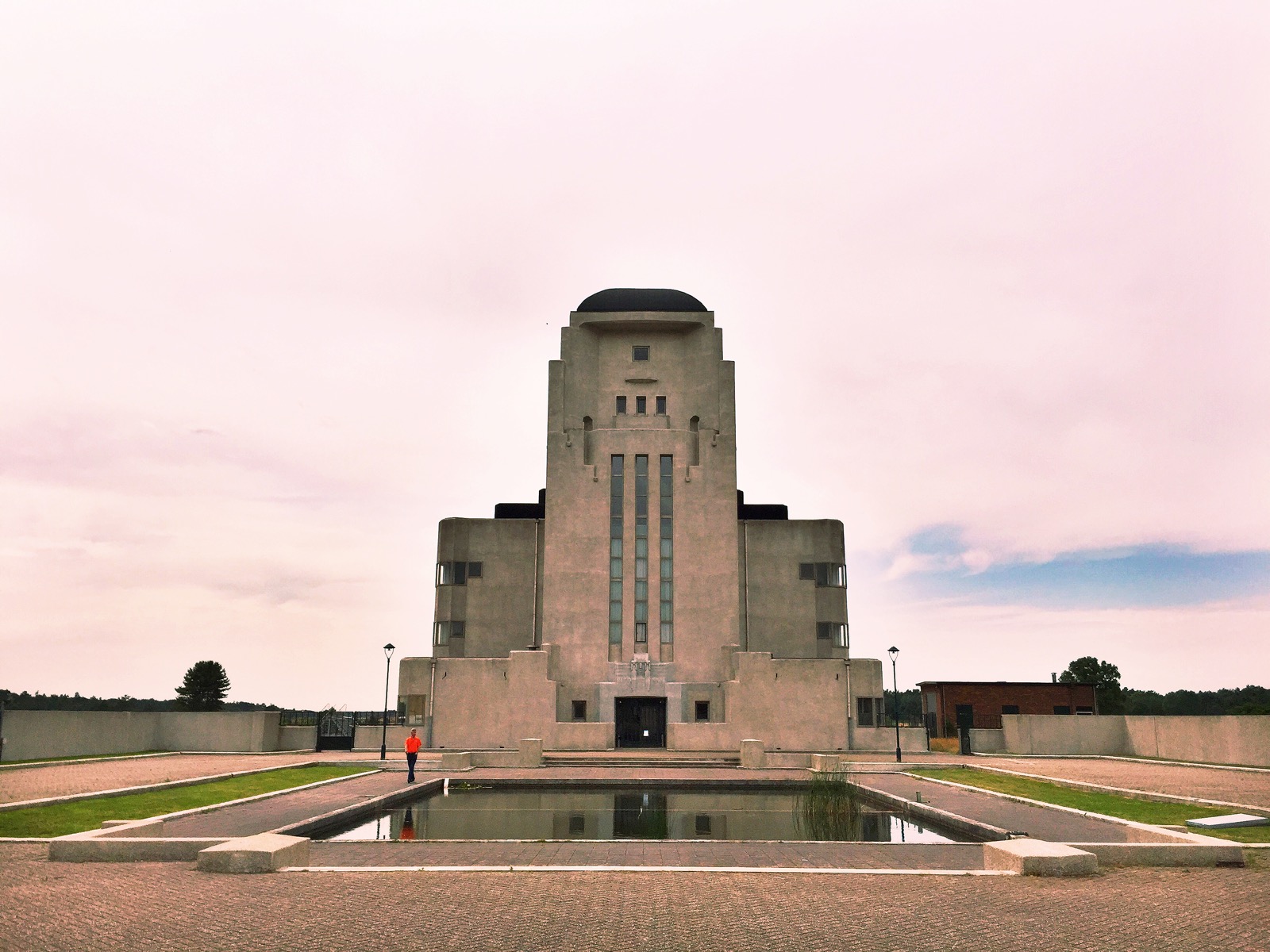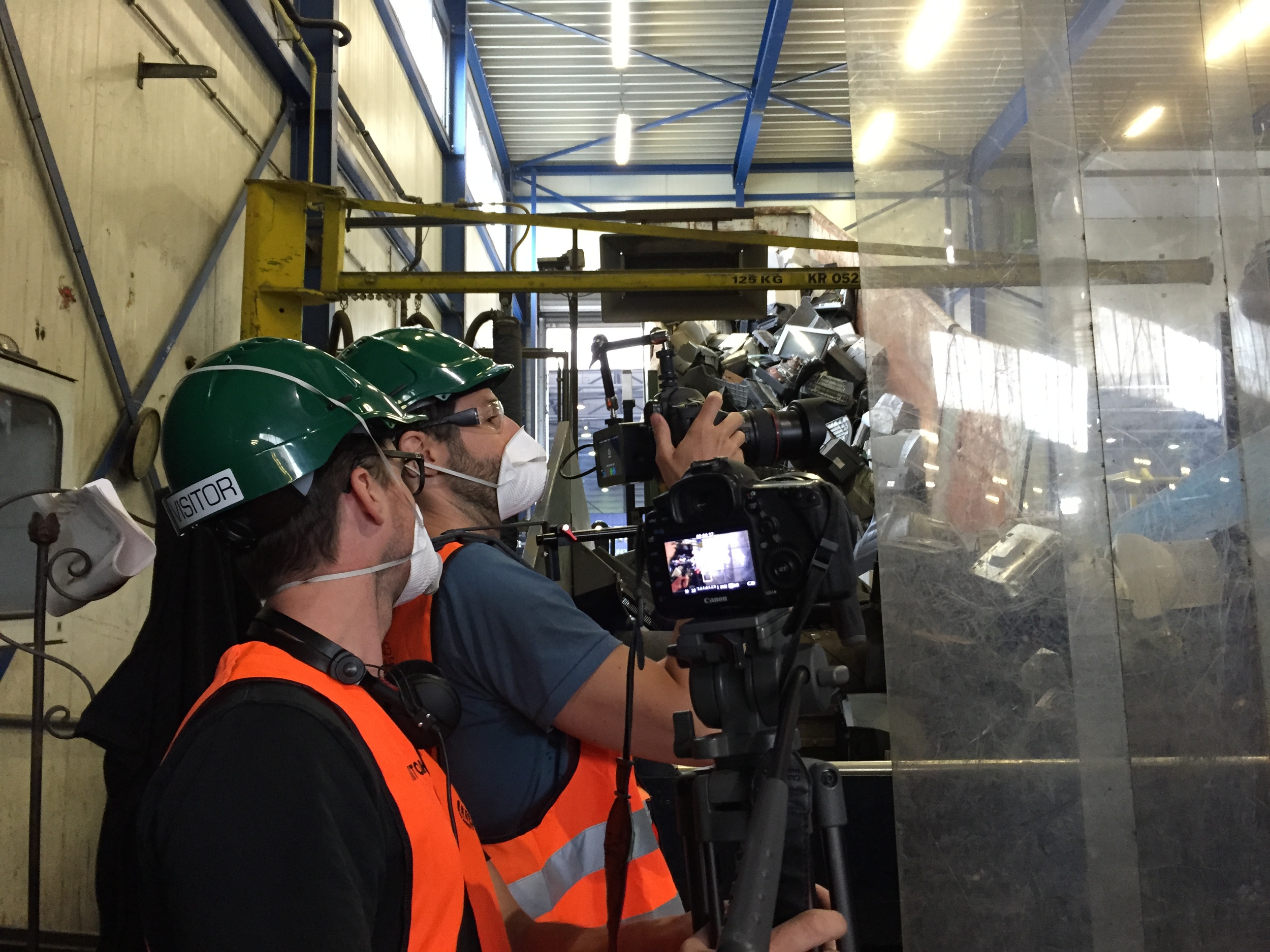As I prepare to head up to Sheffield to interview Professor Hywel Jones of the University of Sheffield Hallam for E-LIFE, my documentary on electronic waste, I realise that we have reached quite an amazing milestone in the project. Almost a year and a half exactly since we began, we are now half way through production. The start of the UK filming means that we have now ticked off 2 of the 5 countries we plan to film in (having been to Ghana and Holland so far). Following the UK, we have a last few weeks in the USA followed by Mexico, hopefully (all being well), wrapping the production in September.
Station Central, Amsterdam.
Last week, the E-LIFE team in the form of myself, James Bulley (composer), Alex Kryszkiewicz (camera), and Julia Schoenheit (Assistant Producer) made our way over to Holland to film a little about what is being done about the eWaste problem. We had four days to film with, in chronological order, Fairphone, Closing The Loop, Sims Recycling, and Phonebloks.
The Fairphone Offices, Amsterdam.
The Fairphone offices in Amsterdam are a stunning loft conversion on the edge of the canals to the East of the city. On the verge of releasing their 2nd phone, the company are progressing in leaps and bounds, proving that an ethically manufactured cell phone is a desirable product. Fair phone operates under the banner of four main tenets: mining (only sourcing from conflict-free zones), design (changing the way people relate to their phones thereby reducing the desire to upgrade and replace at every opportunity), manufacturing (good working conditions with low environmental impact), and lifecycle (concentrating on facilitating the 3Rs: waste reduction, reuse, and recycling).
Fairphone have recently started working with an organisation called Closing the Loop, who we met on the second day of our trip. Run by Joost de Kluijver, CTL has a unique perspective on how to deal with eWaste is developing countries. In Ghana for example, where E-LIFE filmed in May 2015, CTL have collected 70,000 discarded cell phones with the help of a local organisation Recell Ghana. These cell phones are currently on route back from Ghana to a Umicore recycling facility in Belgium where they will be recycled in the safest and cleanest possible way.
The slightly daunting facade of Radio Kootwijk.
Following this we left Amsterdam and headed to Radio Kootwijk, a shortwave radio transmitter formerly the Netherlands main communications mechanism to its colonies. This detour was unrelated to E-LIFE but our composer James Bulley, a successful sound artist, is considering doing a sound installation there so watch this space on a possible film on the subject!
Myself and Cameraman Alex Kryszkiewicz filming waste monitors arriving at Sims, Eindhoven.
Finally we arrived in the South Eastern city of Eindhoven, a city built around the factories electronics giant Phillips. The irony of this little fact was not lost on us. Also recently ranked the 'World's Smartest Region', Eindhoven is a very different kettle of fish to Amsterdam, mostly consisting of very modern architecture and industrial estates. Our first part of call was the electronics waste recycler Sims, who have an enormous facility in the city. The contrast between their heavily mechanised complex and Agbogboshie in Ghana could not have been more striking. Very little was done by hand (although the mechanised changeover only happened 5 years or so ago) and the scale of the operation was vast. What was fascinating was the level of healthy & safety evident at the site. Air quality monitors measured levels of pollutants on an hourly basis and workers are blood-tested yearly to make sure they aren't being exposed to high levels of the toxic materials associated with electronics manufacture.
Our final day was spent in the smaller city of Helmond, home to the innovative organisation Phonebloks. Founded by Dave Hakkens, Phonebloks is the ideal Fairphone in terms of repairability and recyclability. Still very much in the concept stage, Phonebloks is a 100% modular phone that can be tailor made to a consumer's wishes. If you're a photographer for example, you can install a bigger camera by reducing the size of your games component. If you want more better sound quality, increase the size of the speakers while decreasing memory. Although still only an idea on paper, Dave has been working very closely with Google's Project Ara, which is close to releasing it's first modular phone. The creativity in Dave's picturesque workshop, shared with two close friends working on solutions for plastic waste, was truly inspiring.



